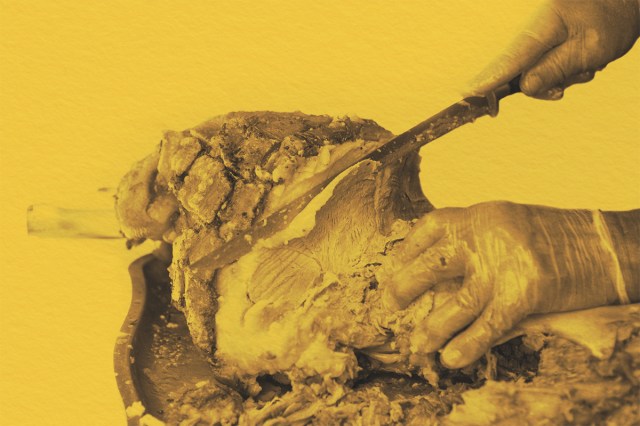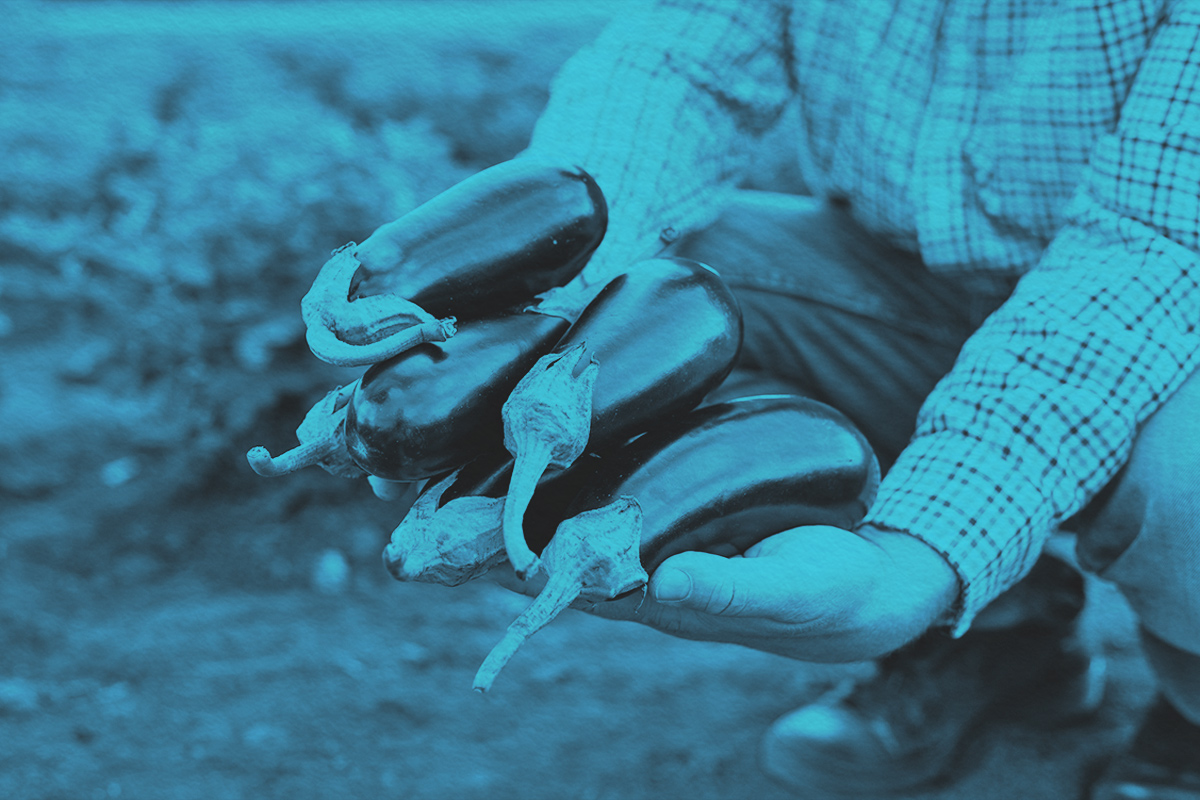
“Chewing the fat” refers to the act of having a conversation, typically a long, informal chat or friendly small talk. The phrase is a classic example of something we often say but without knowing why. After all, what does chewing fat have to do with casual discussion? A few theories exist to explain the expression’s origin — none of which is 100% certain.
Perhaps the most widely repeated explanation traces the phrase back to 19th-century sailors. During a voyage, sailors were often given salt pork as a protein source. The preserved meat was tough and therefore required considerable chewing, and as the seafarers gnawed their way through the chewy portions of fat, they would naturally pass the time by talking with their shipmates. Hence, chewing the fat — which then allegedly became associated with relaxed, unhurried conversation. In reality, however, there’s no direct evidence to support this origin story.
Another common theory suggests the phrase originated in rural 16th-century communities. If a family obtained a nice, fatty cut of pork, they would hang it in the parlor and invite people over to show off their wealth. Guests were then served a small piece, and they would all sit around and chew the fatty pork while enjoying a lengthy chat.
While it may sound reasonable enough, this story was entirely fabricated. According to the myth-busting site Snopes.com, an article called “Life in the 1500s” started circulating the internet in 1999. The above “chew the fat” theory about parlor pork — along with many other myths about medieval life — was spread by this spoof article, but there’s no evidence the phrase existed as far back as the 1500s. In fact, there’s proof against most of the ideas in the made-up piece.
A less common explanation claims the phrase comes from Native Americans (possibly Inuit), who would chew hides to soften them. While we know Native Americans did chew hides in this way, there’s no evidence to support this as the origin of “chew the fat.”
According to the Oxford English Dictionary, an early written usage of “chew the fat” comes from an 1885 book by J. Brunlees Patterson called Life in the Ranks of the British Army in India. In the book, Patterson discusses the frequent grumbling and griping of the soldiers, often to stave off boredom and let off steam — something he refers to as “chewing the rag, or fat.”
Here, “chew the rag” and “chew the fat” appear to be synonymous. The former phrase first appeared in print in 1875, according to the Random House Historical Dictionary of American Slang. (The relevant sentence reads in part, “Gents, I could chew the rag hours on end, just spilling out the words.”)
It’s possible, then, that “chew the fat” simply came about as a variation on “chew the rag.” Both, after all, are actions involving a lengthy chewing action — a movement much akin to talking. But as for the precise origin of “chew the fat,” it seems that may be lost to time.

















